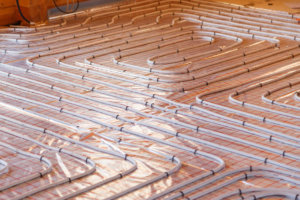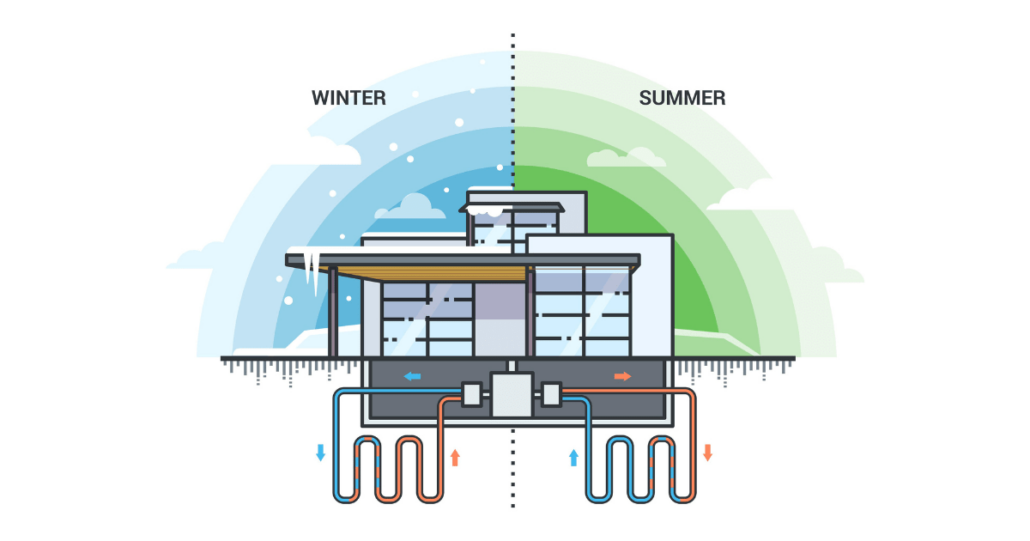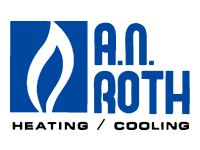Environmentally Friendly HVAC
April is a great month to think about energy use, and how we can be good stewards of our environment. There are many changes individuals can make to help reduce environmental impact. That includes our residential HVAC systems.
A huge amount of energy is expended on HVAC. In 2020, about 10% of all the energy used in the U.S. was devoted to cooling building interiors. On average, more than half of American annual household energy consumption is devoted to heating and air conditioning.

Inefficient HVAC contributes to greenhouse gas emissions.
HVAC is also responsible for a huge percentage of carbon emissions. Direct greenhouse gas emissions from homes and businesses – primarily combustion of natural gas and petroleum for heating and cooking – accounts for over 12% of total U.S. greenhouse gas emissions.
As demand for more environmentally friendly HVAC systems grows, the market is rising to meet it. Here are some of the environmentally friendly HVAC technologies that are available for residential homes:
Radiant Heat

We’ve written before about the benefits of radiant flooring. The concept of radiant heat is ancient, but new technology means radiant heat is clean and accessible for everyone. Radiant flooring doesn’t have to rely on fossil fuels. It’s more efficient than forced-air heating because it eliminates duct losses and uses less electricity than forced air systems.
Radiant flooring can be achieved with hot water tubes or electric wires under the floor. Heat then rises from the floor, warming the entire home evenly. It’s not only better for the environment, but it’s also healthier for you! Radiant heat doesn’t distribute allergens as forced-air systems do.
Geothermal HVAC Systems
Geothermal energy has been used to heat and air condition buildings for decades and has many benefits. The temperature below ground remains relatively consistent throughout the year, despite fluctuations in weather. Geothermal systems tap into this free energy via an “earth loop” of underground pipes.
During a heating cycle, a geothermal heat pump extracts heat from the ground. As the system pulls heat from the earth loop it distributes it through a conventional duct system as warm air. Alternatively, the same heat energy can also be used for a radiant floor system or domestic water heating.
 In the cooling mode, the heating process is reversed, creating cool, conditioned air throughout the home. Instead of extracting heat from the ground, heat is extracted from the air in your home and either moved back into the earth loop or used to preheat the water in your hot water tank.
In the cooling mode, the heating process is reversed, creating cool, conditioned air throughout the home. Instead of extracting heat from the ground, heat is extracted from the air in your home and either moved back into the earth loop or used to preheat the water in your hot water tank.
Geothermal systems eliminate high oil, gas, propane, or electricity bills, and are the most energy-efficient, cost-effective, and reliable home comfort system available. Geothermal systems also eliminate outdoor unit noise.
Smart Home and Zoning
Smart HVAC systems are excellent for helping homeowners save energy and lower bills. Zoning allows you to control temperatures from distinct thermostats on different floors or areas. With a zoned system, you can even control the airflow to individual rooms. This is helpful if you need more heat to a certain area, or if you want to avoid wasting energy in a room you’re not using.
Smart home solutions offer features such as energy tracking, filter alerts, maintenance notifications, and automatic energy savings when you’re out of the house. They also offer homeowners the opportunity to set up alerts when an issue arises with your system! With WiFi-enabled units, your smartphone or computer keeps you in control of your HVAC system, whether you’re at home, at work, or away on vacation.

Consider making the environmentally friendly HVAC choice.
If you’re soon to be in the market for a new HVAC system or system upgrade, consider making a more environmentally friendly choice! A.N. Roth Heating & Cooling is always on the leading edge of HVAC technology, and are the area experts on radiant heat, smart home technology, and geothermal systems. To learn more, contact us today!
